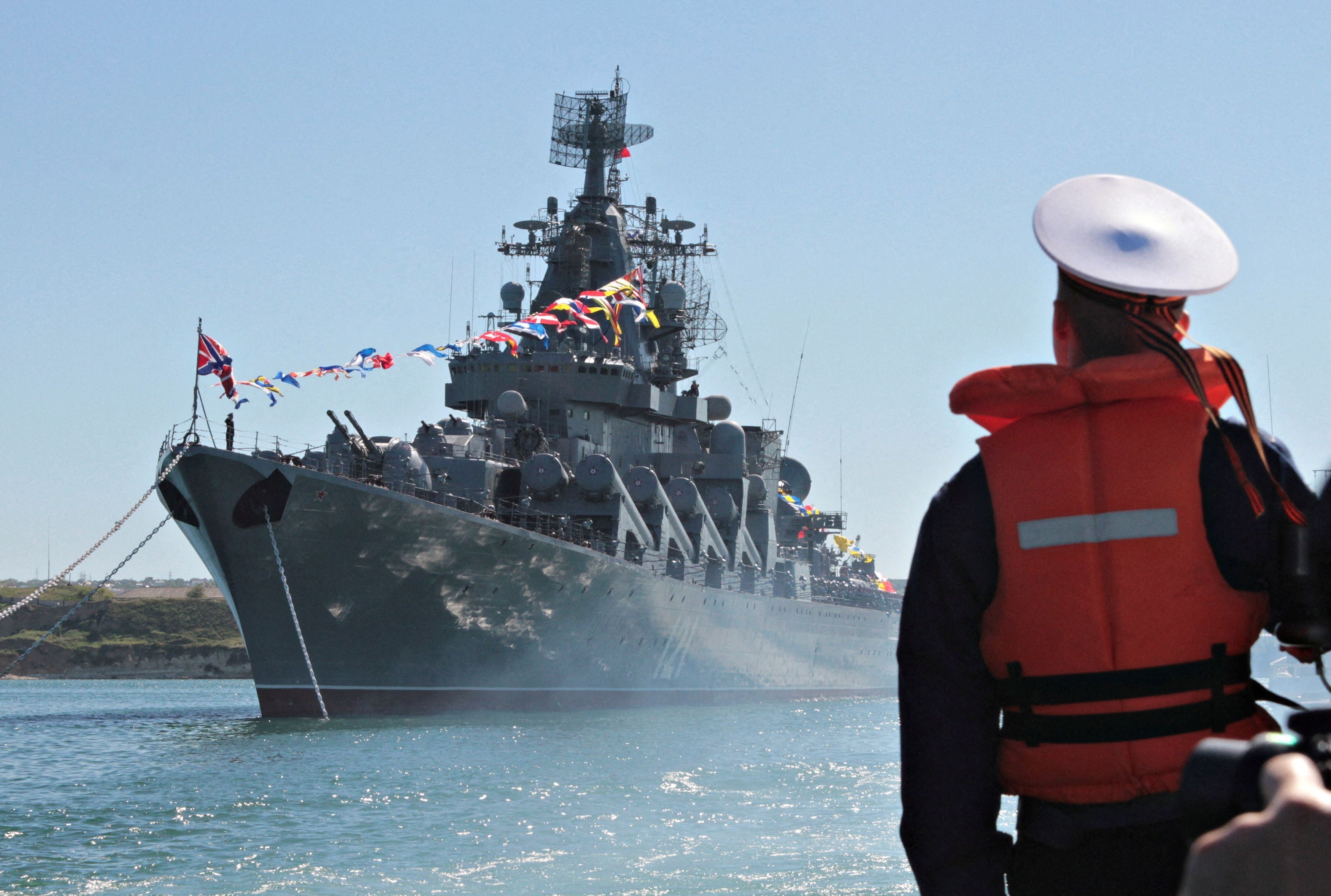Through the fog of propaganda, one unmistakeable fact can be discerned, even if some of the details are hard to make out. The war in Ukraine is going badly for Vladimir Putin.
We cannot be sure yet that Ukrainian forces were responsible for damaging the Moskva, the flagship of the Russian Black Sea fleet, or whether there was an accident on board, as Mr Putin’s media statement claims.
But there is no doubt that the ship is now at the bottom of the sea, as even the Russian propaganda machine admits – sunk in a storm, apparently, as it was being towed back to port.
This is such a striking reverse – the first ship of its kind to be sunk in action since the General Belgrano in 1982 – that it forces us to step back, after 50 days, to try to assess the conflict’s unexpected progress.
When the invasion began, the widespread assumption around the world, including in Moscow, was that the Ukrainians, brave though they were, would be unable to do more than slow the Russian advance on Kyiv. The war was likely to be over in a few days, and Mr Putin would then face a long and draining insurgency against his occupation.
The original version of the old idiom that no plan survives contact with the enemy is credited to Helmuth von Moltke, a Prussian field marshal, who wrote in the mid-19th century: “No plan of operations extends with any certainty beyond the first contact with the main hostile force.” However it is phrased, he has been proved right again.
The Russians have abandoned their attempt on the Ukrainian capital, and seem to be concentrating on gaining enough territory in eastern Ukraine and on the Black Sea coast to be able to declare a victory in time for the 9 May military parade in Moscow.
Even such a limited objective would now seem to require Mr Putin’s spin machine to operate at full throttle in order to present a Potemkin version of the country’s military success.
Instead, the Ukrainians have gained a huge and welcome defensive victory. But most of the consequences of Mr Putin’s failure remain bad, even if they are not as bad as the Russian subjugation of the whole of Ukraine.
One possibility is that the Russian military regroups, purging its officers and replacing them with leaders who are more ruthless and brutal, as happened in two world wars. Another, which could happen at the same time, is that a desperate Mr Putin resorts to further war crimes against civilians, and the use of unconventional weapons. Hence concerns over the use of chemical weapons in Mariupol, and over the ever-present threat of nuclear escalation.
Whatever happens, it does not seem that the conflict is likely to end soon, which means that Ukraine’s allies will have to make some important decisions about the next phase. There are voices pressing for a negotiated settlement, suggesting with varying degrees of openness that Mr Putin should be allowed a way out – a way of proclaiming victory – even if this means Ukraine ceding its eastern provinces.
Other voices press for Mr Putin’s explicit defeat: that he should be forced out of Ukraine altogether (probably excepting Crimea for the moment), and that sanctions should be tighter – in particular, that the European Union should cut off all supplies of oil and gas from Russia.
To keep up to speed with all the latest opinions and comment sign up to our free weekly Voices Dispatches newsletter by clicking here
So far, Ukraine’s allies are still pursuing the middle course set in the early days of the conflict: helping Ukraine with defensive weapons and money while imposing sanctions on Russia that do not cost EU members too much. The British, although we need to do more to accommodate refugees, have been at the leading edge of support for the Ukrainian people in their fight for the right of self-determination.
But Volodymyr Zelensky, the Ukrainian president, is entitled to ask, as he does repeatedly, why his European allies are paying billions of euros to Russia for its gas while his people are fighting a war of survival.
The longer the war goes on, the more uncomfortable that question becomes, and the more The Independent is likely to side with those arguing for a more forceful policy of supporting the Ukrainian people.







Join our commenting forum
Join thought-provoking conversations, follow other Independent readers and see their replies
Comments